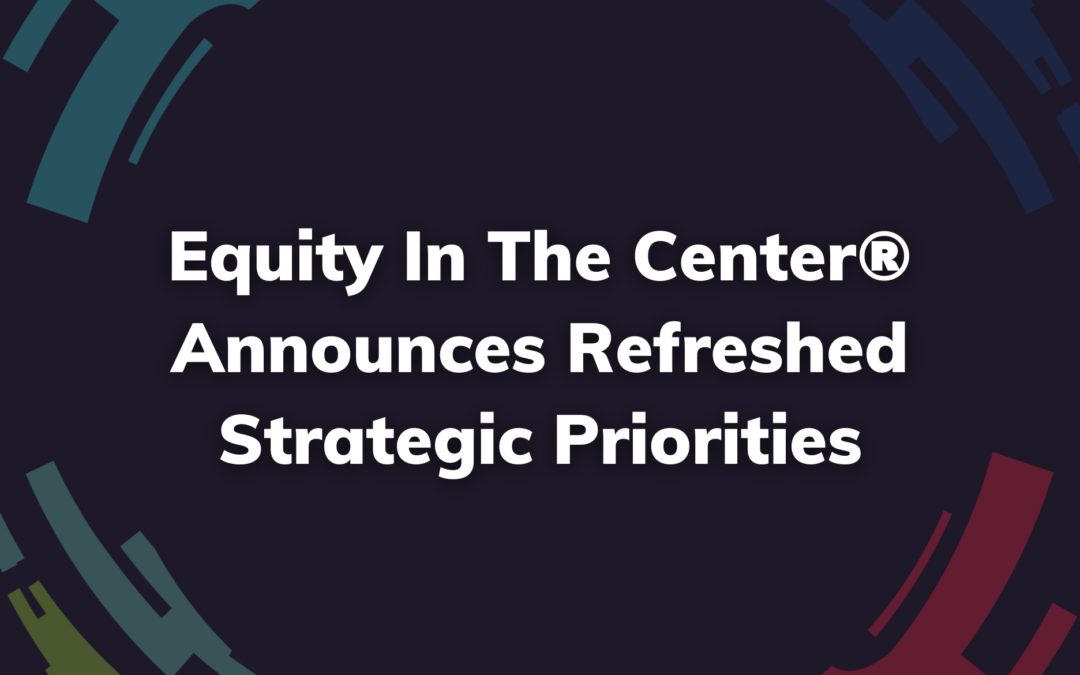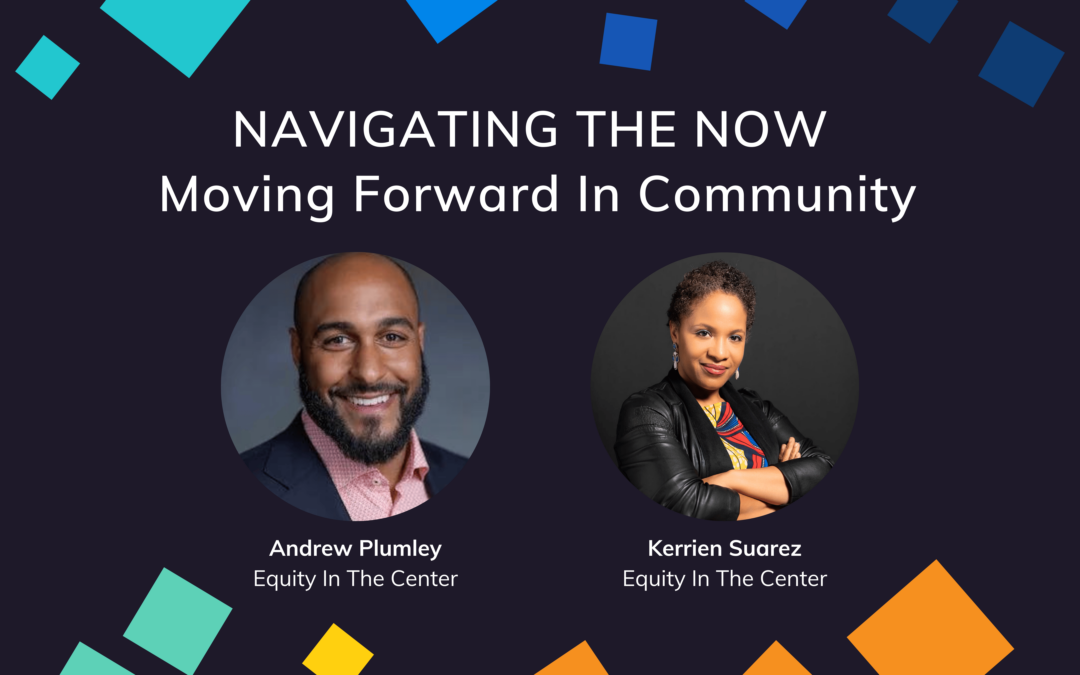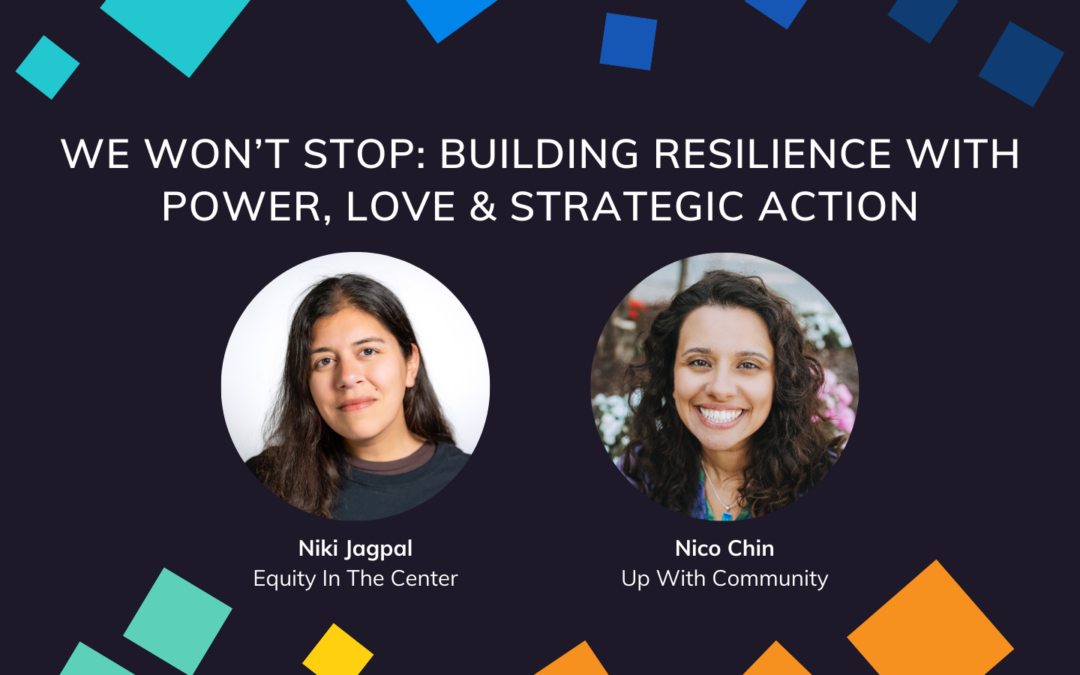By Carly Hare and the EIC Team

Leading with our values of being Pro-Indigenous and Pro-Black, Equity In The Center (EIC) remains inspired by the possibility of working into a Pro-Indigenous framework for our collective liberation. To that end, we recently shared a video explaining our practice of paying a land tax to the Piscataway Conoy, whose land we occupy in the Washington, DC region. EIC allocates 2% of our annual budget for this purpose, and encourages colleagues to redistribute resources as part of a broader commitment to take action in solidarity with Indigenous communities.
Are you curious about what a reparative relationship with Indigenous communities could look like in your own work? If you are ready to move from acknowledgement to action in solidarity with Indigenous communities, we encourage you to put your values into practice by establishing a .5% or more contribution to one or more local, regional or national Indigenous organizations/communities as a permanent line item in your organization’s budget. Demonstrating a commitment to moving beyond land acknowledgments, the Kataly Foundation recently announced a $20 million Shuumi (land tax) contribution to the Sogorea Te’ Land Trust to support their rematriation work on Lisjan Ohlone land. This is the single largest cash gift to a Native land trust in history, providing an example for other grantmakers to put their stated values into practice.
“…This lack of relationship with and knowledge about Indigenous peoples, culture and communities isn’t by accident; it is the direct result of centuries of marginalization that began with land theft and genocide…”
Numerous stakeholders have reached out to share that they would like to move forward with doing so, but don’t know where to begin in terms of identifying the Indigenous communities or organizations to which they can direct resources. It is important to note that this lack of relationship with and knowledge about Indigenous peoples, culture and communities isn’t by accident; it is the direct result of centuries of marginalization that began with land theft and genocide and evolved to include government policies to reservize and invisibilize Indigenous peoples. And even today, Indigenous Peoples are ignored or left out of anti-racist efforts.

Screenshot taken at the 2024 Super Bowl. The racist team name, Kansas City Chiefs, was displayed below text that says, “End Racism.” (Photo credit: Reductress.com)
For those ready to act now, we’ve developed this list of Indigenous-led organizations to support. They include intermediaries by program area, tribal groups by region, national organizations championing change and regional associations supporting sovereignty. If you want to join in movements to support Native communities and organizations, learn about ways to engage for for Missing and Murdered Indigenous Women (MMIW) Awareness Day on May 5, 2024 and Native Nonprofit Day on May 17, 2024.
If you can’t take immediate action and are looking for resources to support making the case for why your organization should adopt a reparative approach to resource redistribution to Indigenous communities, we encourage you to explore the framework and resources developed by our partners at Decolonizing Wealth Project.



